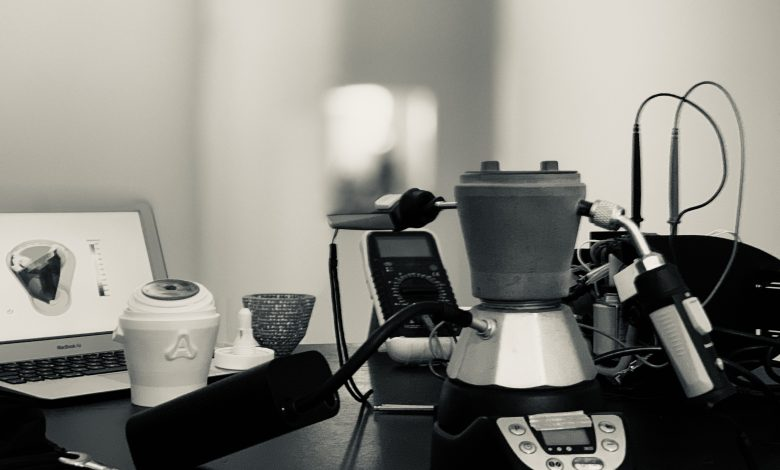3D Coffee is a project financed by the European Union funds as part of the First Open Call of the Digital Innovation Hub World, which sees the innovative startup Additive Appliances and the Kilometro Rosso innovation center as protagonists, with the additive technologies lab Lisa Tech. To prepare quality coffee, pressure and temperature control are essential. The “thermo-mechanical” or traditional machines, such as the Moka, the siphon, or the French press, do not directly control these variables and have well-known process limits; however, they are eco-friendly and have a greatly reduced environmental impact, more than 30%, compared to electric machines.
Sustainability, less waste, distributed production, and improved performance are just some of the potential advantages of additive manufacturing, which is today, in fact, firmly included among the enabling technologies for a transition to a circular economy.
“Technology has always played a key role in product improvement. Coffee-making machines are no exception: steam energy first, and then electricity and electronics are excellent examples, and they have radically changed the way we prepare the drink. Additive Appliances is adding 3D printing to this list, paving the way for the exploration of a radically new design and manufacturing space; in short, we want to innovate, but also make the consumption of the second most popular drink in the world more sustainable and one of the excellences of our country. Just like Kilometro Rosso is, an ideal partner for us”, said Tommaso Beccuti, Founder and CEO of Additive Appliances.

Manufacturing on Demand
The latter have solved the problem by integrating additional electrical and electronic components, which make them fast and effective but also more difficult to dispose of. Approximately 100 million units invade the market every year; considering the total number of machines installed in the world, the environmental impact of these components is very high. To address the compromise between quality and sustainability, Additive Appliances developed a heat exchanger using AM. With the support of Lisa Tech, the solution was experimentally validated on several functional 3D printed prototypes. The result has the potential to revolutionize the way we prepare coffee, both in domestic and professional products, making it more sustainable, more efficient, and guaranteeing high-quality coffee while also opening up the possibility of producing customized components to enhance the taste and the aroma of the so-called “Specialty Coffee”.
“Italy is one of the main centers of the European manufacturing industry and Kilometro Rosso is a reference for innovation. We are happy to support Additive Appliances in this project thanks to Lisa Tech, confident that this collaboration will lead to the development of new solutions made possible thanks to additive manufacturing technologies. The Kilometro Rosso is always open to innovations, in various fields. In fact, we collaborate with our partners for all initiatives aimed at the future ”, said Salvatore Majorana, Director of Kilometro Rosso.
A webinar titled “Additive Manufacturing: solutions and applications for sustainability” will be held on Wednesday 6 April at 11:00 am, during which the results achieved by the 3D Coffee project and other solutions and applications of AM technology for sustainability will be discussed. Speakers include Giuseppe De Marco of Lisa Tech – Kilometro Rosso, Tommaso Beccuti of Additive Appliances, David Brunelleschi of DIH World and Giovanni Avallone of Caracol. The event will be broadcast live on Kilometro Rosso’s social channels.
* This article is reprinted from 3D Printing Media Network. If you are involved in infringement, please contact us to delete it.
Author: Andrea Gambini



Leave A Comment